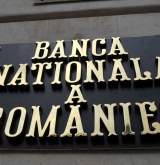“These instruments would have triggered a positive impact especially to institutional investors, who would have ensured effective break-ups of portfolios. However, this would have shored-up small-sized investors who pumped money into open investment funds” stated for Wall-Street, Silviu Enache, general manager at KD Capital Management.
A proper market liquidity would have directed many investors towards this type of low-risk investment as an alternative to banking deposits, a choice made by many investors in the last period.
"This way, a major share of investments would have stayed in the capital market rather than migrating to other markets,” Gabriel Aldea, broker with Intercapital Invest mentioned.
Bogdan Mortu, broker at KD Capital Management says the market developed with monetary instruments would have experienced as well a liquidity shortage.
“Now, with an extremely dangerous precedent, it was ascertained the need for monetary instruments designed to preserve the yields from shares. A market of monetary instruments would have been the core feature that would have kept investors active in the equity market”, he added.
Marius Pandele, Head of Reseach at Vanguard says a market developed of state-owned securities could have not thwart the pessimism that swept off the stock exchange
“The only positive important effect would have been that a share of the Romanian funds that exited the stock market would have been directed to state-owned securities, which is a positive impact on market liquidity, and would have kept investors closer to the market, in the context of a future recovery of share prices,” Pandele explained.
“A well-balanced and liquid monetary market would have worked as a seesaw within clients’ portfolios. The shift from shares to monetary instruments or in reverse would have been easier, counterweighing big downslide effects,” said Marcel Marcu, deputy managing director at KD Capital Management.
Translated and adapted by Camelia Oancea.
Citeste si:
Calculator Salariu: Află câți bani primești în mână în funcție de salariul brut »
Te-ar putea interesa și:


















































































![HR [PLAY] Tech Workout - 11...](https://www.wall-street.ro/image_thumbs/thumbs/973/973fe0a3888d417feff63de42e814180-260x260-00-65.jpg?v=1714068079)









